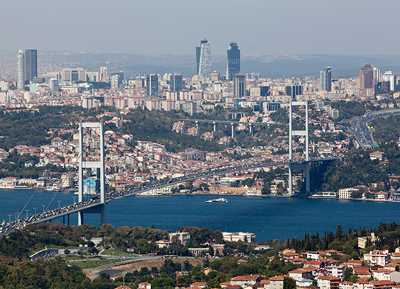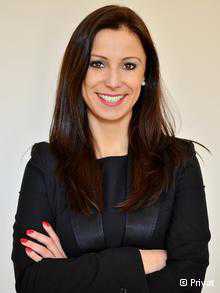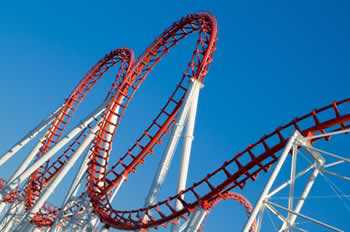High-tech suspension bridge for Istanbul

Siemens is ensuring the safe and smooth operation of what will be the world’s fourth-longest suspension bridge — a structure that will have a main span length of 1,550 meters and rise 60 meters above the Gulf of Izmit, south of Istanbul, Turkey. The bridge, which is scheduled to go into operation at the end of 2015, will be one of the safest in the world. Among other things, its stability and mechanical stress loads will be measured and analyzed by more than 400 sensors that will also enable it to be closed immediately in dangerous situations. The picture shows one of the existing suspension bridges in Istanbul which desperately need relief of traffic congestion.
Siemens is ensuring the safe and smooth operation of what will be the world’s fourth-longest suspension bridge – a structure that will have a main span length of 1,550 meters and rise 60 meters above the Gulf of Izmit, south of Istanbul, Turkey. The bridge, which is scheduled to go into operation at the end of 2015, will be one of the safest in the world. Among other things, its stability and mechanical stress loads will be measured and analyzed by more than 400 sensors that will also enable it to be closed immediately in dangerous situations.
The bridge across the Gulf of Izmit is the central component of a planned 420-kilometer highway link between Istanbul and Izmir. It’s also one of many forward-looking infrastructure projects that have been launched as Turkey prepares to celebrate its 100th anniversary as a republic in 2023.
Siemens is supplying all electrical and electromechanical components for the bridge, including power supply systems, bridge, roadway, and interior lighting equipment, fire protection solutions, sensor systems for monitoring the structure’s stability, a traffic monitoring system, and the control center that will analyze and process all data.
The so-called Structural Health Monitoring System is very important for the safe operation of the bridge. This system will continually measure, among other things, longitudinal and transverse stretching movements and stress loads on the road sections leading up to the main span. Special GPS sensors will register oscillations of the 250 meter-high bridge piles down to the last millimeter, while wind and temperature measuring units will also provide information that indicates whether the bridge can be crossed safely. To ensure the all-steel bridge doesn’t rust in the misty air of the Sea of Marmara, the humidity in all interior chambers and on the sheathed support cables will be automatically kept below 40 percent. The bridge will also be equipped with video cameras (CCTV systems) that monitor traffic flows. All data will be forwarded to the control center in realtime, which will make it possible to close the bridge if stress loads get too high. Taken together, these measures will lengthen the service life of the bridge and guarantee traffic safety.
Provided by Siemens





